Graham Reid | | 3 min read
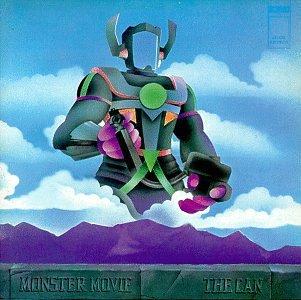
By definition most people miss cult acts. And to their tuned-in loyalists that makes them even more special. There is nothing like the whiff of martyrdom, or being ignored or misunderstood, to elevate a musician’s reputation among the faithful.
Like most people, I missed Can in the late 60s/early 70s. No matter, the albums are out there. Again.
Can’s credentials as avant-rock, proto-ambient and sonic constructionists are in any decent rock text but, briefly, they were from Germany and came to rock in their late 20s via avant-garde classical music like Stockhausen and the Beatles’ I Am the Walrus. Not to say they sound like an amalgam of those disparate sounds, far from it.
There is a rolling momentum to much of their work and you can hear what people like the Orb and Sonic Youth -- who remixed Can tracks for the Sacrilege album in the late 90s -- could hear in them. Can owe much to the jazz ethos of improvisation, although they aren’t jazz musicians, and scattered throughout their work is material which sounds like an offshoot of the early Velvet Underground, and experiments with tape loops, electronics and found sounds.
The trouble with coming late to such artists is they sounded more innovative in their context. Time has a way of rendering revolutionary movements redundant, or at least just kinda funny sounding.
Can suffer from some of that as the reissue, remastered release through EMI of their first four albums -- Monster Movie (69), Soundtracks (73), Tago Mago (72) and Ege Bamyasi (72) -- proves.
The early neo-primitive guitar jamming of Michael Karoli can sound like an offcut from an 80s Flying Nun album (another useful reference point) and Malcolm Mooney’s undistinguished and often unintelligible vocal contortions may add obscure charm but are often hard to take.
It’s hard to agree with David Stubbs’ (neatly qualified) liner notes assertion that their debut Monster Movie “may well have been the most significant album released in 69”.
The material on Soundtracks -- recorded in 69/70 but released later -- has enjoyed more longevity than the art-house flicks they were written for. In retrospect it is the bridge album between staking out the ground and the more assured and sophisticated two albums which would follow. Even at this time however Jaki Liebezeit’s adroit and tight drumming is the key ingredient in the mix.
There’s also a lot more art-rock of the King Crimson kind on Soundtracks than those who acclaim Can as revolutionaries might wish to concede. (Try Deadlock for some pomp-ed up keyboards by Irmin Schmidt.)
The album also has vocalist Damo Suzuki on a few tracks -- Mooney had a breakdown and headed back to America -- and his barely decipherable singing (remember early REM and how engrossing Stipe was back then?) pulls you in. The key track is the 15 minute Mother Sky, a relentless and loping undercurrent established by bassist Holger Czukay and Liebezeit, and mood swing guitar on top. It swirls and chugs, and is killer stuff.
The Tago Mago double vinyl established their sound: long, often spaciously airy jams which can either sound like spaced-out guitar rock or abstract ambient. The music is exploratory and organic, oblique and mysterious (thanks to Suzuki’s vocals). It was also constructed out of edited loops and is an inner journey into outer space, with propulsive rhythms. If Can is a cult which has gone past you here’s the place to tune in, and it will set you up for Ege Bamyasi, often considered their classic album and, like so many, borne out of difficulty.
The weather was miserable and Karoli was suffering from a perforated ulcer. The music on Ege Bamyasi is darker, in a good way. It is ethereal and mystical (very Eno-like in places), and you can also hear elements of Middle Eastern music and electronica effects among the jamming grooves.
The later Future Days has been hailed as their masterpiece, and some point to Saw Delight in the late 70s. That’s down to taste. But in 74 Suzuki left, and Czukay in 77. They reformed in 89 but their best was well behind them.
Can are no longer an obscure cult act. This is the second (perhaps third) CD reissue of their albums (although the first remastering), there is The Can Book by Pascal Bussy and uber-fan Andy Hall, and the Can Box of a 450 page book, doco-video and double disc of live recordings came out in the late 90s. There is also a DVD/CD set of the same.
Everyone from Primal Scream’s Bobby Gillespie, Pulp’s Jarvis Cocker, John Lydon, Brian Eno and Air have lined up to testify to Can’s innovation and genius. And you can’t tell me Shaun Ryder (Happy Mondays/Black Grape) didn’t hear Tago Mago and think, “That’s a good idea”.
So it’s out of the cult and into the mainstream, then?
Hardly. I dare any radio to try the 20 minute journey of Halleluhwah.

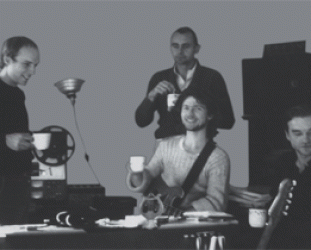

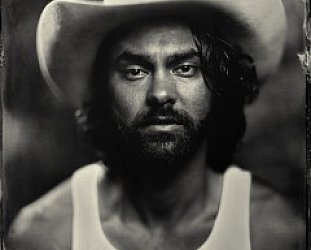
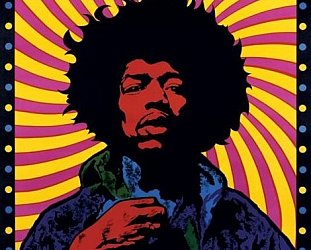
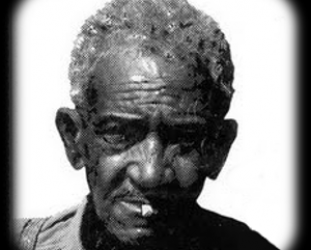

post a comment